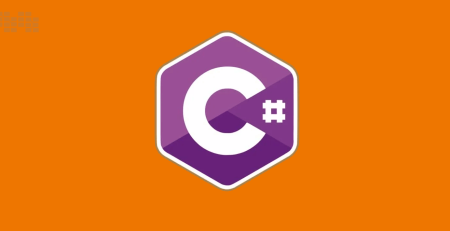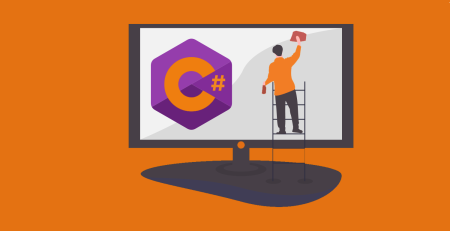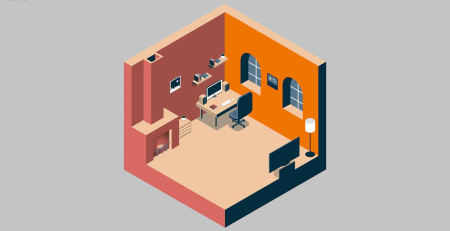Node.js vs PHP: Ultimate Comparison Guide
The performance, database, client-side coding, and other useful aspects of Node.js vs. PHP comparison include when to choose Node.js over PHP and vice versa.
Two excellent backend web technologies are PHP and Node.js. Node.js perfectly satisfies the development requirements of contemporary web applications, while PHP has long been regarded as the best language for server-side scripting. What specific features do PHP and Node.js each have? What are the benefits and drawbacks? What technology should you pick, and when? To assist you in making an informed choice, this comparison of Node.js and PHP aims to provide answers to these and other questions.
Although both technologies were developed in different eras and technological environments, they share a number of notable characteristics. For example, both are regarded as strong alternatives for the backend of web applications, are open source, and have sizable supporting communities.
However, businesses that have used PHP in the past prefer it to rivals, whereas Node.js is a favorite among developers who use it to address contemporary issues with its rapidly expanding libraries and frameworks.
Choice of one technology over the other will obviously affect time-to-market, resource utilization, product performance, budget, and many other factors because of their interconnectedness and significant differences.
Comparison Overview: Node.js vs PHP
One of the most dependable languages for server-side scripting is PHP, which is used by internet juggernauts like Facebook, Wikipedia, and Tumblr. Since its introduction in 1995, this language has grown a sizable community that supports it.
It has a number of built-in functions and libraries that make creating e-commerce and CMS websites incredibly simple, despite the fact that it is synchronous and only functions well with a central server in place.
Node.js, which was introduced in 2009, has quickly established its dominance in important web application categories. Its well-known asynchronous architecture, used by LinkedIn, Netflix, Medium, and other major players, gives it the effectiveness and speed necessary for the handling of queries.
Both Node.js and PHP, which is a scripting language, are frequently used as backend technologies for creating web applications. Both Node.js and PHP show to be excellent for a variety of projects with the aid of libraries, frameworks, and APIs.
Node.js vs PHP – Which is more popular?
| Metric | PHP | Node.js |
| 1. Number of Websites | 5,060,459 | 241,072 |
| 2. Market Share (Across Websites Segmented by Traffic) | 5 | 0 |
| 3. Lead in Geography | 162 | 0 |
| 4. Stack Overflow Questions | 1,435,199 | 427,317 |
| 5. Popularity Across Website Categories | 6 | 0 |
Although the data amply demonstrates PHP’s staggering popularity across all categories, it ignores the 14-year period between the two programs’ launches. Additionally, it makes no mention of PHP’s recent difficulties with new-age projects. Its inability to meet the demands of modern technology and downward trend are primarily caused by scaling and concurrency issues, which is not surprising.
On the other hand, Node.js provides more useful packages for contemporary projects, easily outperforming PHP in this area and gaining a loyal user base in the process.
Node.js vs PHP: Detailed Comparison
Coding
You can accomplish more tasks with less code if the syntax is clear and carefully designed.
Node.js
On the surface, it might appear that Node.js needs more lines of code than PHP to perform the same tasks. Thankfully, the entire development environment is JavaScript-programmed, so you don’t need to worry about remembering different languages’ syntax while you’re coding. So even though Node.js only supports one language, it occasionally necessitates relatively longer lines of code.
PHP
Over the years, PHP has grown significantly and has been around for a while. From a distance, it might appear that PHP is simpler and requires fewer lines of code to perform the same function. However, you also need to be familiar with how Linux, Apache HTTP Server, MySQL, and PHP self operators and generators operate (commonly referred to as LAMP).
Recommendations
Both languages can be easily understood on their own. A novice developer could become proficient in either language in no time. Despite having longer code, Node.js is simpler to execute because it only uses one programming language in its setup. Therefore, Node.js is a winner in our books for coding.
Client-Side Coding
The focus of server-side programming is on the efficient performance of the operations that will eventually make up the UI. This is an important parameter because it greatly affects how an app works, how much data is used on the client’s device, and how quickly pages load.
Node.js
The main advantage of this development environment is that you can import all of the server-side logic from the backend code. The features you have allocated on both fronts are then simple to access. Node.js also shifts a significant amount of work to the client side. Therefore, Node.js is the best option for your use case if your target audience has smartphones with respectable processing power. However, it requires a constant connection to the server because it uses the AJAX engine to generate new web pages in response to client requests.
PHP
PHP was made specifically to support dynamic web pages. As a result, many functionalities that you might require for the website’s UX elements are already present.
Beyond that, each static web page’s HTML code is what PHP is dependent on. Since no modifications are required for each web page, the page loads quickly and without taxing the processing abilities of client devices.
Recommendations
The use-case you are using determines the value of both Node.js and PHP. PHP would be ideal if your project involves a static website with few client requests and your target audience uses low-powered devices.
However, you should choose Node.js if your use case involves dynamic websites that frequently send server requests and has a dynamic UI.
Speed
This metric describes the execution speed that both technologies have by default. A quicker development process and more cost-effective projects result from high execution speed.
Node.js
One of the few asynchronous development environments is Node.js. This makes Node.js stand out from other languages and gives it an advantage. Because it is asynchronous, it does not have to wait for a module to complete its execution before loading the next one. Such execution provides a seamless user experience and significantly reduces the web app’s downtime.
PHP
Like the majority of pre-2K languages and technologies, PHP relies on synchronicity to function. This implies that each module and function is carried out in the sequence specified by the code. If one module or function is not run, the subsequent ones won’t begin until it is.
Recommendations
Due to its quick performance, Node.js is a clear winner because of its asynchronous execution.
Performance
Performance measures how well PHP or Node.js code performs in terms of KPIs like page loads and seamlessness. When using KPIs that have a significant impact on the UX of your product, a high-performing technology will produce better results.
Node.js
Because Node.js is asynchronous and uses the JavaScript V8 Engine, it executes code extremely quickly and starts up quickly. Node.js doesn’t block requests for other processes to finish them because it is event-driven.
Concurrency is the term used to describe this execution that is not dependent on the order. Multiple modules are run at once but not simultaneously when they are executed concurrently.
Simply put, even though they use the same resource and are carried out in the same environment, their start and end times may vary.
PHP
PHP was created much earlier, and this can be seen in how quickly pages load thanks to PHP. It causes a process to be blocked until it has finished computing, which results in slow loading and no room for concurrency.
But if you still want to use PHP, you can combine it with the HHVM Virtual Machine, which runs PHP web applications. It can increase your PHP web app’s performance by nearly 75%. However, Node.js is still a quicker option.
Recommendations
Just-In-Time Compilation is used by both PHP and Node.js. However, Node.js is without a doubt the technology that delivers if performance is high on your list of desired features.
Frameworks
Due to the fact that the most frequently used code is already provided with functions, libraries, and APIs, frameworks enable you to concentrate on the finer points of your project. The less redundant code you need to write, the more comprehensive the framework.
Node.js
With frameworks like Meteor, Derby, Express, and Sails, Node.js has rapidly increased the number of its libraries. Although these frameworks can increase productivity by cutting down on development time and resource usage, PHP’s frameworks far outnumber those of Node.js.
PHP
PHP has been around since 1995 and has a huge library of frameworks, each with their own specialized markets. Some development firms, such as Laravel, CodeIgniter, CakePHP, and Phalcon, concentrate solely on various PHP frameworks.
Recommendations
Although there are many PHP frameworks, selecting the one that performs best requires more consideration. Numerous PHP frameworks were developed to incorporate Node.js-native features like non-blocking. A common problem among many PHP frameworks is mixed content and code.
Node.js was created at a time when separating code and content into separate modules was the norm, so consistency is upheld across the majority of its frameworks, keeping the code clean and understandable.
Additionally, the majority of its frameworks were created using JavaScript, making it simpler for programmers to maintain the backend and frontend logic of creating web applications.
In conclusion, Node.js will be a better option if your project necessitates a significant amount of framework usage.
Database
Here, we’re looking at both the type of database—relational or traditional—and how easily the technology can connect with it. Data is typically stored in a navigational or hierarchical format in conventional databases.
Relational databases store data as tables, making it incredibly simple to comprehend the connections and dependencies between various data points.
Additionally, NoSQL (Not Only SQL) databases have made significant strides in recent years, enabling the storage of data in formats like documents, key-pairs, and even graphs.
Nearly all types of data structures, including unstructured, semi-structured, and structured databases, can be stored in NoSQL databases. Because of this, NoSQL databases are very helpful to developers.
Node.js
Node.js is in sync with all types of databases because it evolved along with NoSQL databases. Node.js seamlessly integrates with NoSQL databases like MongoDB and CouchDB thanks to JavaScript Object Notation, a special data format used when interacting with databases.
Additionally, it supports graph databases and has sizable libraries for interacting with SQL databases.
PHP
Due to its age, PHP was created to function with relational and traditional databases like MySQL and MariaDB. Although it is possible to import libraries to work with NoSQL databases, the procedure is time-consuming and laborious.
Recommendations
Node.js is what you need if you want to build a scalable web application that frequently pulls data from traditional, relational, or NoSQL databases.
Node.js vs PHP – Request handling
This is a gauge of how quickly a technology responds to requests from clients. While accurately executing the request is unquestionably important, it must also be done with the least amount of resources and time possible. Error handling would give us more insight into which technology enhances the user experience.
Node.js
The system doesn’t have to wait for one process to finish before starting the next one because multiple requests are processed asynchronously. Additionally, no RAM or CPU time is wasted. The only issue here is that if a request’s error isn’t resolved right away, it might interfere with other requests and result in a system-wide error.
PHP
PHP only processes one request at once. Naturally, it uses up more RAM and CPU resources. Every request is carried out in a silo because it’s at the opposite end of the parameter spectrum.
This stops request errors from spreading, but because it processes each request separately, it slows down the system.
Recommendations
In this comparison, Node.js is superior. It uses fewer resources to complete more processes. Additionally, you can protect the system from slogging brought on by poor execution by using efficient error-handling mechanisms.
In PHP, libraries can be used to access asynchronous functionality. However, because this is not a native feature, Node.js’ effectiveness simply outperforms it.
Community
What kind of updates are made to the various frameworks, libraries, and projects that are launched under each technology depends on the size and level of the community. It goes without saying that your team won’t be able to create the code from scratch for every feature and module.
Utilizing well-known and tried libraries reduces development time and boosts productivity. A larger community might have more projects, but what adds value to your team depends on the caliber of each project, library, or framework.
Node.js
On npmjs.com registry, the majority of Node.js projects are listed. In comparison to PHP, the Node.js community is smaller because it is more recent. However, the community’s projects skew more toward the needs of contemporary development. In fact, rather than acting as a library to import features from other languages, many projects concentrate on giving Node.js new, specialized functionalities.
PHP
Since PHP has been in use for a longer period of time than most technologies, it has a larger community and more completed projects. But a major problem with this is that, in comparison to Node.js, the more recent community projects just seem uninteresting.
The projects they created at first received positive feedback for expanding platform features that already existed in other languages. However, given the prevalence of projects that are similar, some PHP devotees feel as though they need to see more captivating projects come their way.
Recommendations
The npmjs.com package registry is where Node.js projects are uploaded. Compared to PHP, there are undoubtedly fewer projects, but those projects tend to be much more recent and pertinent. It’s a tie between projects currently being developed in Node.js and PHP.
Modules
Typically, modules function as smaller programs within a larger program. They each have a specific set of capabilities and are frequently interchangeable, which is what gives the program its “modularity.”
Node.js
Some PHP aficionados frequently gripe that Node.js projects are less reliable than their PHP counterparts. Systems for quality control are hardly in place because the community is still developing.
The Node.js package registry has launched the npm-audit initiative as a form of regulation. You can now check each package for malicious code using this.
PHP
For many years, PHP has had an advantage in this area. However, some PHP devotees have recently voiced their displeasure at receiving subpar projects. They have moved to other platforms as a result, especially since PHP’s built-in features can be imported there as well.
Recommendations
PHP currently has a larger library of modules. But Node.js is progressing significantly in this area. Therefore, PHP would still be advised, with Node.js coming in second.
Ecosystem
The ecosystem of a platform is controlled by its community. It demonstrates how many open-source projects, frameworks, modules, libraries, and APIs are being released by the community at any given time.
Node.js
Although the Node.js ecosystem has a large number of libraries and frameworks, they are far outnumbered by PHP. Node.js doesn’t have as many projects as other frameworks, but it makes up for that with variety. Due to the fact that it is used for both server-side and backend programming, the projects that are readily available can fit into a wider range of use cases.
PHP
WordPress has significantly improved the PHP ecosystem. Nothing better illustrates PHP’s omnipotent reach than the fact that the company directly manages a sizable portion of all websites on the internet.
In addition, the PHP community has created a ton of educational resources and enabling technology over the years to attract new developers.
Recommendations
While Node.js has a richer ecosystem with a wider range of projects, frameworks, and modules, PHP has a larger ecosystem overall. Because of this, Node.js also triumphs in this contest.
Node.js vs PHP – Hosting
It gauges the degree to which a technological platform is compatible with various hosting service providers. The variety of options available directly impacts hosting costs. When choosing a host, the web app’s speed and security must also be taken into account.
Node.js
Node.js can compete thanks to its variety of alternatives. Node.js’s upkeep provider Joyent offers a SmartOS platform. Debugging, performance improvement, and deployment simplicity are all greatly benefited by this. It is simple to use Node.js in a Platform-as-a-Service setup with Heroku and Nodejitsu.
PHP
Nearly 79% of the internet is powered by PHP, both directly and indirectly. It is made to be compatible with all significant hosting service providers because of its majestic reach. It satisfies the requirements of many servers with its LAMP stack. LAMP isn’t regarded as the most secure hosting technology stack, though.
Recommendations
Node.js and PHP both have greater compatibility with hosting companies. You could freely select either platform for your web-app development project if security is not a major concern. There isn’t a difference that would be irreconcilable.
When to Choose Node.js Over PHP?
Node.js can offer the most benefit for the development of your web applications if you’re looking for the features listed below:
- Development Efficiency: You might be using MongoDB, ExpressJS, or AngularJS when developing a dynamic single-page application. For simple development and top performance, this stack is typically combined with Node.js.
- High-speed and Reliable Server Callback- When making repeated requests to the server, web applications made with Node.js typically perform better. Because of its asynchronous architecture, it can be executed without blocking, which is great for any project that demands speed.
- Real-Time Data: Node.js is ideal for web apps that require real-time data functionality because the data transmission speed from the server to the client-side application is optimal.
Node.js has been utilized by organizations like Netflix, LinkedIn, and Medium for a long time. Real-time data, a reliable and quick connection to the server, and ease of development are clearly the three things in common.
When to Choose PHP Over Node.js?
If your web app needs any of the following characteristics, PHP would be the best technology for your stack:
- PHP is the ideal addition to your tech stack if your goal is to assign a specific centralized server to your web application that isn’t scaled across a wider range of servers. Additionally, it is compatible with MySQL, Apache, and Linux.
- Portability: While PHP does limit the number of servers you can connect to successfully, it also gives you excellent portability between servers. Because of this, you can essentially port your web application to any server that supports databases and has Apache, IIS, or other database-supporting features. Additionally, you can practically have your website up and running right away if you use it with content management systems like WordPress, Jumla, or Drupal.
Some of the most well-known PHP users include Wikipedia, MailChimp, and Tumblr. They demonstrate the breadth of what a centralized server and effective PHP use can accomplish.
Limitations of Node.js and PHP
Although both technologies have great potential for your web app, they also have drawbacks. You should be aware of their limitations prior to choosing:
Node.js
- Unsuitable for CPU-Heavy Apps – Despite its speed, Node.js frequently has trouble with web apps that require a lot of CPU and heavy graphics. This is so that it can manage multiple concurrent requests using a single thread. If one request’s execution is interrupted, it might have an impact on how well other requests work as well.
- Insufficient Quality Assurance in Frameworks and Libraries Node.js’ extensibility is made possible by a large number of libraries and frameworks created by both the platform’s community and outside developers. While many of them have excellent documentation and support, not all libraries and frameworks have these advantages.
PHP
- Negligent error handling Most seasoned developers agree that PHP lacks a strong ability to highlight, filter, and manage errors—even with the built-in error-handling tools. For smaller projects where the codebase can be checked for errors, it is not a deal-breaker. When a web application is scaled, handling errors cannot ever be a standalone manual task. Simply put, PHP falls short in this area.
- Synchronous Execution: PHP executes each module in order, in sharp contrast to Node.js. This prevents errors in one code from affecting other codes, but the process is slow and frequently results in a crash. This adds more weight to PHP’s scalability problems.
Conclusion
No standardized method exists to determine whether Node.js is superior to PHP or vice versa. To choose the technology that best suits your project, though, you should first map out its requirements rather than trying to judge which technology is superior to the others.
Give your human expertise some extra thought in addition to the relevance of technology. Ask if the expertise can offset the potential disadvantages of the technology if your team is stronger in one area of technology than another.











Comment (1)
Node.js vs PHP, what an intriguing topic! As a developer, I’m always curious about the latest technologies and their pros and cons. I’m excited to read your comparison guide to gain a deeper understanding of these two popular server-side languages. Making informed choices is essential in our field, and your insights will undoubtedly help me navigate the Node.js vs PHP landscape. Thanks for tackling this comparison!